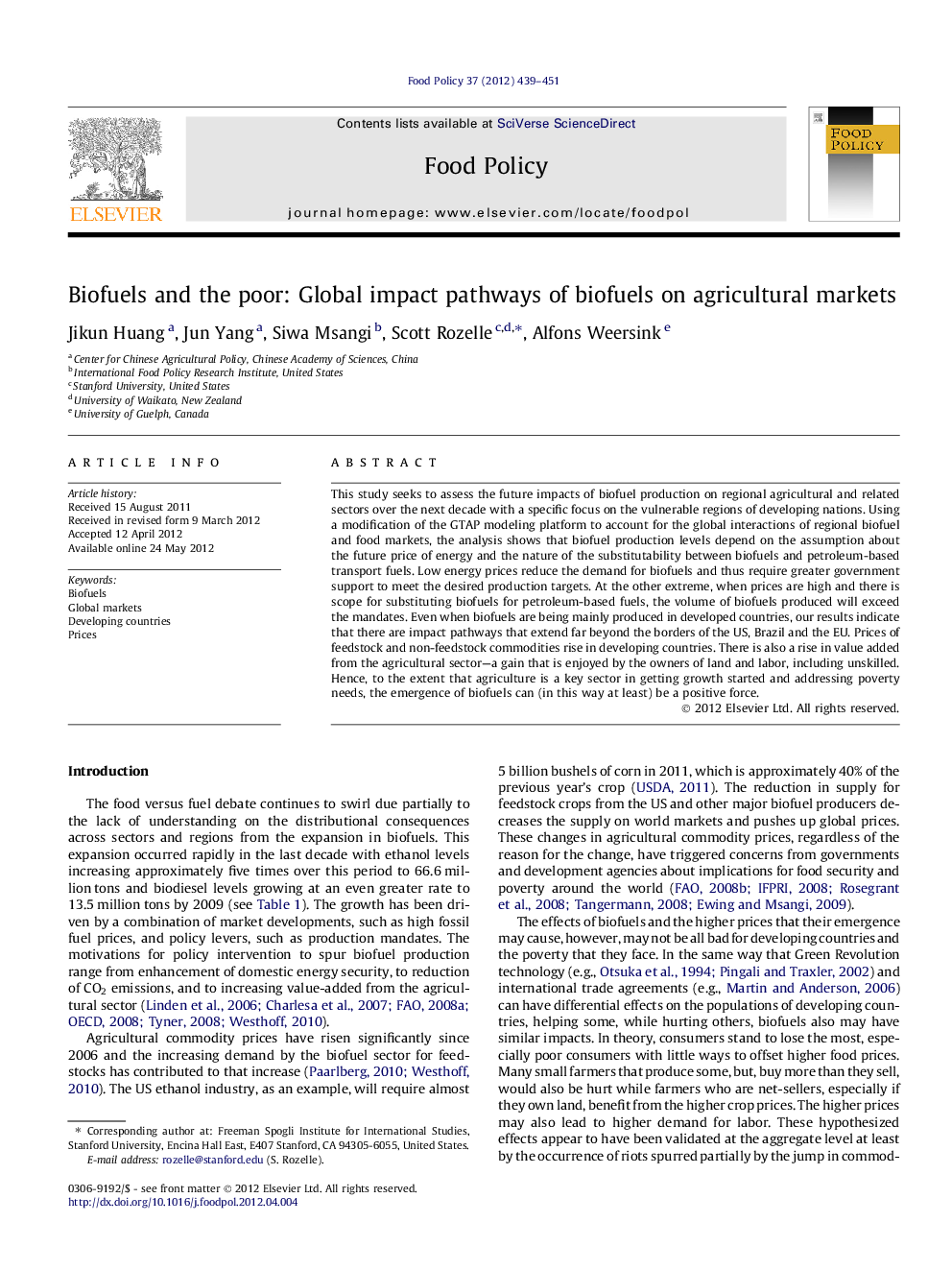| Article ID | Journal | Published Year | Pages | File Type |
|---|---|---|---|---|
| 5070942 | Food Policy | 2012 | 13 Pages |
This study seeks to assess the future impacts of biofuel production on regional agricultural and related sectors over the next decade with a specific focus on the vulnerable regions of developing nations. Using a modification of the GTAP modeling platform to account for the global interactions of regional biofuel and food markets, the analysis shows that biofuel production levels depend on the assumption about the future price of energy and the nature of the substitutability between biofuels and petroleum-based transport fuels. Low energy prices reduce the demand for biofuels and thus require greater government support to meet the desired production targets. At the other extreme, when prices are high and there is scope for substituting biofuels for petroleum-based fuels, the volume of biofuels produced will exceed the mandates. Even when biofuels are being mainly produced in developed countries, our results indicate that there are impact pathways that extend far beyond the borders of the US, Brazil and the EU. Prices of feedstock and non-feedstock commodities rise in developing countries. There is also a rise in value added from the agricultural sector-a gain that is enjoyed by the owners of land and labor, including unskilled. Hence, to the extent that agriculture is a key sector in getting growth started and addressing poverty needs, the emergence of biofuels can (in this way at least) be a positive force.
⺠Biofuel production levels rise by over 200% with high energy prices. ⺠Government mandates determine biofuel levels unless energy price is high and easy substitution between fuels. ⺠Biofuel mandates increase 2020 commodity prices and production by at least 20% and exports fall. ⺠A rise in biofuel production has a positive effect on value added from agriculture across all regions. ⺠Landowners receive the greatest benefits but unskilled and skilled laborers also benefit.
